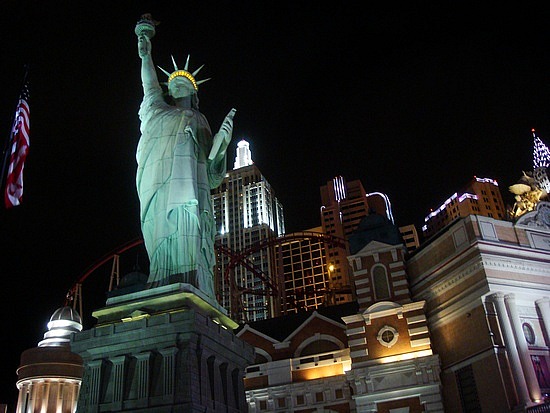 The question is being asked and the answer may come sooner than later.
The question is being asked and the answer may come sooner than later.
Did New York pass a casino referendum that would see expanded gambling in the state illegally?
That’s the assertion being made by Brooklyn lawyer Eric Snyder, who claimed that changes were made to reword parts of the referendum to promise more employment opportunities, cut taxes, and increase aid for schools. That may not seem like a big deal on the surface but according to Snyder, these changes were done in secret and thus, violated the state’s Open Meetings Law.
Talking to the Associated Press, Snyder claims that he obtained a video of the July 29 meeting and read through the transcript of the meeting, noting that the Board of Elections didn’t vote on the referendum. “I don’t know what they did, but they didn’t approve the language,” Snyder told the Associated Press.
The original measure written by New York governor Andrew Cuomo and the legislature calls the referendum as “promoting job growth, increasing aid to schools, and permitting local governments to lower property taxes through revenues generated.” Conspicuous by its absence in the original wording were the added benefits of tax breaks and school aid.
The Board of Elections have denied Snyder’s assertions and that the vote to send the referendum to voters in the November 5 ballot was not in volition of the law. John Conklin, a spokesman for the Board of Elections, clarified that the referendum was approved on July 29 and that the records were released with the signatures of the executive directors showing that the changes were actually made.
Another point of contention Snyder brought up was his claim that the board authorized executive directors to make more changes through the telephone, a clear violation of the aforementioned Open Meetings Law. Robert Freeman, the executive director of the state Committee on Open Government, clarified the intricacies of the law, which says that “a meeting cannot validly be held by telephone nor can voting occur over the phone”. The law also states that court rulings “specifically require government meetings to be in the presence of each other in an open setting so the public cannot just hear them, but see them and see who may be “whispering in their ear.”.
If the Board of Elections is found to have not voted for the change or to have violated the Open Meetings Law, the action needed to make the referendum valid would be void, and that could block it from the ballot.
Clearly, the stakes are high now that this Brooklyn lawyer, a staunch opponent of Cuomo’s expanded casino plans, has come out, up-in-arms over what he believes are violations made by the Board of Elections. Not only could it derail Cuomo’s grand plans, but it could also place a lot of people in hot water.
That probably explains why the Board of Elections apparently requested to have Snyder’s case thrown out because it missed a 14-day deadline to file the action taken on July 29.
